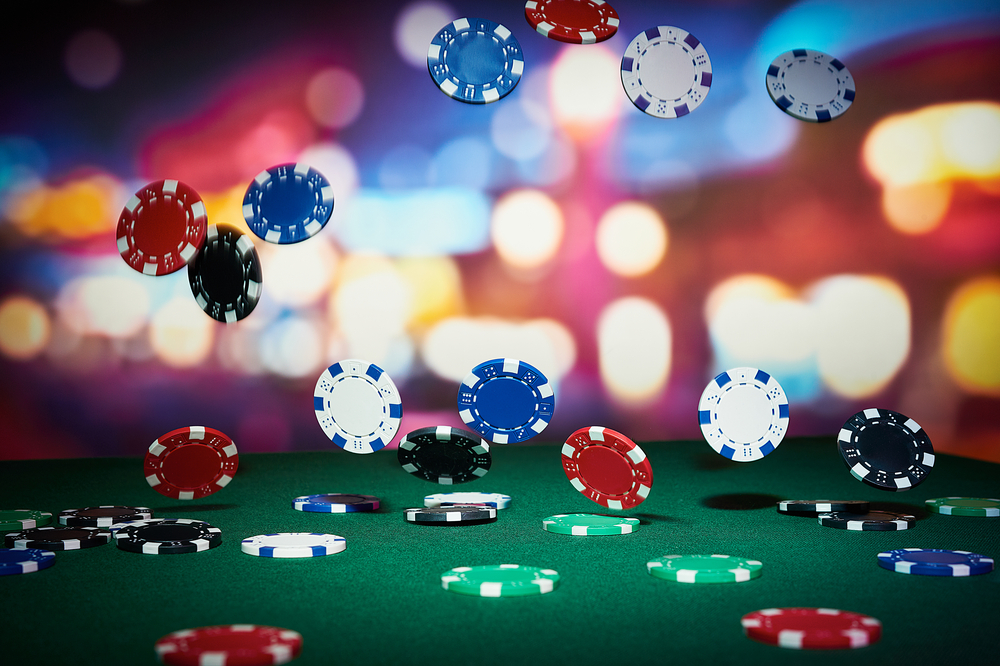Casino entertainment have long been a staple in human culture, delivering not just entertainment but a fascinating reflection of our dreams, wishes, and concerns. From the rotating wheels of a slot machine to the tactical play of poker, these games encapsulate a spectrum of human emotions and events. nổ hũ mmlive At their core, casino games are not just a chance to earn cash; they are a snapshot of life itself, where risk versus reward intertwine and fate can change in an instant.
As players gather around tables or sit in front of vibrantly illuminated machines, they participate in a ritual that transcends mere gambling. These games echo our innate desires for relationships, excitement, and the search for fortune. They also reveal deeper truths about human behavior, such as our relationship with chance and the adrenaline of the unknown. In exploring casino games, we discover not only the rules of play but also the intricate pattern of the human journey, showcasing our interconnected narratives of goal and reality.
The Mind Behind Gambling
Wagering is deeply rooted in the psyche of individuals, tapping into various emotions and wants. The thrill of taking risks is a fundamental aspect that draws players in, be it it’s thrill of spinning a roulette wheel or the anticipation of drawing a winning hand in poker. This rush of adrenaline is frequently likened to other forms of excitement, as the unpredictability of outcomes triggers a distinct psychological response. Gamblers often become captivated by the possibility of winning big, leading to an almost magnetic draw toward casino games.
Additionally, a crucial component of the psychology behind gambling is the concept of optimism and ambition. Participants often indulge in fantasies of financial freedom and the opulent lifestyle that can accompany winning. This optimism fuels their ongoing participation in casino games, as it provides a sense of purpose and the conviction that a transformative win could be just one wager away. The narrative of beating the odds and finding success resonates with many, reinforcing their commitment to play and engage with these games.
Finally, social dynamics play a crucial role in gambling psychology. Casino environments are designed to foster social interaction, where gamblers gather to share the experience of wins and losses. This shared aspect not only enhances enjoyment but also influences behavior, as individuals often mimic the actions of others around them. The social validation found in mutual thrill can enhance the emotional experience, making casino games a reflection of not just personal desires but also shared involvement within the gambling community. mmlive
### Risk and Reward: A Double-Edged Sword

Gambling games embody the subtle balance between risk and reward that resonates deeply with the human experience. The excitement of placing a bet is often accompanied by a jolt of energy, as players are confronted with the prospect of winning big, yet conscious of the risk to lose. This dual experience reflects a core aspect of life: the paths we choose often come with built-in risks, and the chase for gain can push us to make risky moves we might not otherwise consider. In this way, casino games reflect real-world decisions, enticing gamblers to risk not just their money, but also their aspirations.
The allure of big prizes and payouts fuels a feeling of positivity, motivating gamblers to envision a brighter future that could arise from a single victorious spin of the wheel or dealing of a hand. This optimism can compel individuals to engage in more daring actions, pushing them to extend their limits in search of financial gain. However, just as in life, the consequences of these decisions can lead to both victory and failure. The narratives of both big winners and those who have lost everything at the tables demonstrate the unpredictable nature of luck and its consequential effect on our lives.
Ultimately, the experience of engaging with gambling activities serves as a strong reminder of the nature of humanity. Every round played is loaded with the tension of uncertainty, as gamblers weigh the rewards against the dangers. This interaction not only highlights the excitement that comes with betting but also unveils the risks that come with the longing for more. As we explore the challenges of choice and results in both the gambling world and in life, we find that the search for benefit shapes our identities and lives in significant manners.
Society and Solitude in Casino Environment
Gambling culture is a distinct mix of communal interaction and personal pursuit, reflecting the dualities of individual experience. Gamblers often gather around games, sharing in the thrill of the game, rejoicing in wins, and sympathizing over losses. This communal aspect is essential, as it fosters a sense of belonging and bonding among varied groups of individuals. Regular attendees to casinos may form friendships and establish routines, turning the gambling venue into a second home where they experience linked to a larger community of players.
However, the allure of casino games can also lead to isolation. As individuals become immersed in the excitement of playing, they may isolate from personal relationships or neglect to interact with the world outside the gaming space. For some, the search of a jackpot can overshadow real connections, leading to loneliness. The situation of being surrounded people yet experiencing solitary is not uncommon, as the focus shifts from shared enjoyment to the individual concerns of each player’s journey.
This interaction of society and solitude creates a rich tapestry that defines casino atmosphere. It highlights the intricacy of human interactions, where happiness and despair exist together. Casinos serve as both a refuge for social interaction and a stage for individual struggles, illustrating how intimately entwined our yearning for connection and the individual quest for fortune can be. In navigating this environment, gamblers confront their own narratives—seeking both the thrill of the wager and the fellowship of fellow players, eventually mirroring the wider spectrum of individual experience.